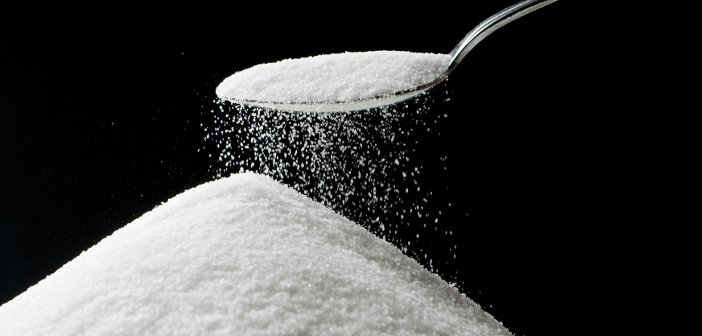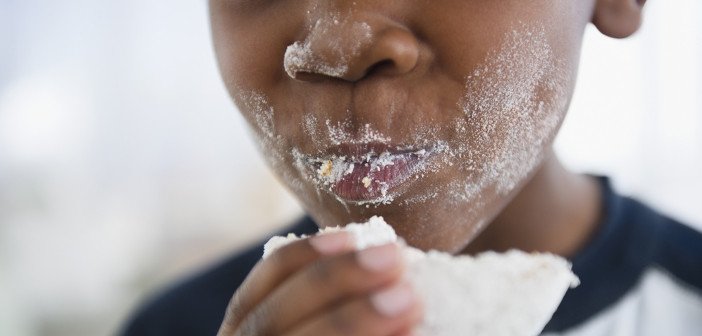Ireland’s Sugar Addiction is Causing More Problems than Rotten Teeth
It’s almost the middle of January – that annual, crucial stage in the year when just about everybody is struggling to carry on with their New Year’s resolutions. When the gym membership usage spike begins its slow, steady decline. When that extra pint before last orders is looking pretty tempting. When people start to realise that vaping is just as addictive as smoking.
But there’s one resolution that very few people have made, one addiction not that many of us are consciously aware of, one thing that Irish people in particular seem to have a considerable – and surprising – problem with.
Sugar.

Yep, sugar. And not just your typical “I just drank about seven litres of Coke in the cinema” sugar, or your “This cake says it serves 4. Yeah – ALL 4 ME!!” sugar. Those kinds of sugars are obvious. They’re in sweet things, like cake and chocolate and donuts and jellies and ice cream and, y’know, sweets. They’re nice, but we all basically know that they’re bad for us and eating too much of them can lead to lots of health related issues so we try to cut down when we can. They’re those kinds of sugars.[pullquote]There is one thing that Irish people in particular seem to have a considerable – and surprising – problem with: sugar.[/pullquote]
But there are other sugars, ‘hidden sugars,’ that are causing just as many health related problems in Ireland. Insidious, secret sugars popping up in seemingly healthy foods like fruit juices, cereals, yoghurts, and almost anything that prides itself on being ‘fat-free.’ Added, annoying sugars we assume aren’t there that are rotting our teeth, giving us type 2 diabetes, and contributing to the fact that the country’s obesity rate has risen by 67% in the past ten years.
That’s according to Dr. Eva Orsmond, whose documentary Sugar Crash aired on Monday night on RTÉ One. The programme was a one-off special that focused on Ireland’s “toxic relationship with sugar,” the risks associated with our inordinately high levels of consumption, and how even the smallest changes to our diets could eliminate the risk of costly hospital bills, tooth decay, and even premature death.

The documentary criticises what Orsmond calls Ireland’s “sugar culture” – a society that has normalised the consumption of vast quantities of sweet foods, while simultaneously being blissfully unaware of the hidden sugars that exist in even the ‘healthiest’ of foods. “Sugar culture” means that the average Irish person eats half an adult male’s body weight in the sweet stuff every year. It also means that our little country is now the fourth highest consumer of sugar in the world.
Back in March, the World Health Organisation called on all adults and children to greatly reduce their daily sugar intake. According to data compiled by the organisation, individuals who have successfully reduced their sugar intake to less than 10% (about 12 teaspoons a day) of their total energy intake tend to, as a result, suffer very few sugar related diseases. Director of WHO’s Department of Nutrition for Health and Development Dr. Francesco Branca says that the organisation
… have solid evidence that keeping intake of free sugars to less than 10% of total energy intake reduces the risk of (being) overweight, obesity and tooth decay (…) Making policy changes to support this will be key if countries are to live up to their commitments to reduce the burden of noncommunicable diseases.
WHO have also recommended that in order to see any additional health benefits, a person would be required to reduce their intake to less than 5%, or 6 teaspoons of sugar a day. This recommendation does not include natural sugars found in fruit, vegetables or milk, but the added sugars present in other, non fresh, foods.

It is to this 6 teaspoon limit that Dr. Eva Orsmond is suggesting Ireland stick to too. In Sugar Crash she revealed that the average Irish person was consuming 24 teaspoons of sugar a day – 4 times the amount recommended by WHO, and 20 times the amount consumed by the average Indian person. She attributes this number to the food industry’s failure to clearly and simply mark just how much sugar is in their products, the “fat free fad,” and Ireland’s rush to gain weight after World War 2 left us the skinniest country in Europe.[pullquote]“Sugar culture” means that the average Irish person eats half an adult male’s body weight in the sweet stuff every year. It also means that our little country is now the fourth highest consumer of sugar in the world.[/pullquote]
So if hidden sugars even exist in foods we assumed healthy, and almost 75% of supermarket foods contain added sugar, what are we supposed to do? According to Dr. Orsmond, it’s all about watching our intake and being aware that low calorie foods are often high in sugar, making them more fattening than some higher calorie foods. So reading food labels during the weekly shop, giving children less junk food, and generally watching what we’re eating.
Which is all well and good if you’ve got the time to head down to Tesco and spend an extra while struggling to work out just how many grams are in a teaspoons (it’s 4) before you cook yourself a dinner … Or if you’ve got time to cook yourself a dinner at all.

According to a survey conducted by Campus.ie, 80% of students choose to eat their meals on campus as opposed to cooking at home. Which makes sense considering college is stressful, you’re probably spending 10 hours a day in the library, and grabbing a bowl of chilli cheese fries is a lot less time consuming than going home and making yourself something nutritious. And even if you did end up going home, a five pack of Koka noodles from Lidl is sometimes a lot cheaper, and a lot quicker to make, than a healthy alternative. It’s an issue that most students – and a lot of people working full time jobs, facing long commutes, and not making that much money – are probably facing. Eating well is necessary to ensure we remain healthy, but it can also be expensive if we don’t have the time to cook for ourselves.[pullquote]Every week, over 100 children are admitted to hospital due to dental problems that are entirely preventable by giving them less sugary foods.[/pullquote]
Dr. Orsmond suggests that our nation’s addiction to sugar can be remedied by making a little extra time to ensure we know exactly what we’re eating, but also by giving Irish children less sweets growing up. Every week, over 100 children are admitted to hospital due to dental problems that are entirely preventable by giving them less sugary foods.
Cooking from scratch, obsessing over food labels, and closely monitoring our sugar intake may not be an option for many Irish people, but if the amount of the sugar was clearly marked and easily accessible on our food products surely it’d make everything that little bit easier. And if reducing our sugar intake can prevent type 2 diabetes, fatty liver disease and actual death, it’s not unfair to say it’d probably definitely be worth the hassle.
